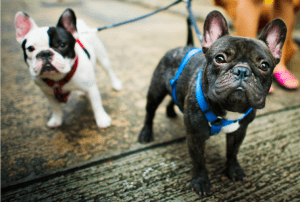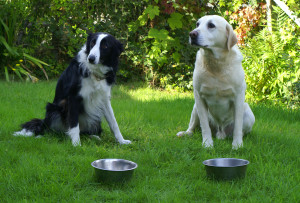Aggression Between Dogs Living Together.
Dog to dog aggression can be worrying enough, but when this occurs with dogs living together, it can pose various challenges to owners. Read our Holidays4Dogs article for more information and help on aggression between dogs in the same household.
Although dogs are social creatures and, in the main, get along with one another just fine, sometimes conflict can arise between dogs that live together. Just like people, disagreements happen. As with growling behaviour, it is important to get the bottom of what triggers aggression between canine housemates.
creatures and, in the main, get along with one another just fine, sometimes conflict can arise between dogs that live together. Just like people, disagreements happen. As with growling behaviour, it is important to get the bottom of what triggers aggression between canine housemates.
At Holidays4Dogs some of our carers have resident dogs of their own. However, they have all been temperament assessed for their friendliness towards strangers and unfamiliar dogs.
If you would prefer your dog to be with a dog-free host family, we have many carers who do not have a dog of their own. In addition, we never mix dogs from different families under any circumstance – so you can be rest assured your dog has concentrated attention. You can read more about our services here.
Which dogs are more likely to be aggressive?
Any type, or breed of dog, can be aggressive. However, research has found that female dogs tend to be more aggressive than males. They are also more likely to instigate conflict and fights often last longer – some resulting in injuries. Studies have also established that, the most recent dog in the household, is much more likely to be aggressive than existing dogs. In addition, younger dogs are more likely to start fights than their older housemates.
 In addition, studies into household aggression between dogs found the main trigger for fights, was associated with the actions of the owners.
In addition, studies into household aggression between dogs found the main trigger for fights, was associated with the actions of the owners.
Fights can also occur due to excitement such as, the arrival of people to the house. Conflict surrounding food, or toys, was also high up on the list of triggers.
Moreover, dogs involved in aggressive behaviour within the household, are much more likely to be aggressive in other situations.
As well as this, aggressiveness is not the only problem seen in certain dogs – Some dogs also suffer from separation anxiety, or have other fears or phobias, in addition. Fighting, is ultimately as stressful for the dogs involved, as it is for owners.
It is interesting to note that it is rare for dogs to fight between themselves, if there are no people present in the house. Left to their own devices, and without human intervention, dogs are usually able to work things out for themselves.
How to improve the situation.
It’s would be a good idea to have your dog assessed by a vet initially, to make sure there are no underlying health conditions that may be causing the aggressive behaviour. This is particularly important if the behaviour is sudden in onset.
Approaching the matter of fighting dogs may at first sound daunting and, indeed, many people give up. Many dogs are re-homed due to aggression between two, or more dogs, in the same household. However, with the right positive approach, it is possible to help squabbling dogs live together in harmony.
However, with the right positive approach, it is possible to help squabbling dogs live together in harmony.
Socialising dogs is very important because, this is how they learn to read signals from other dogs. Exercise is also important and ensures canine housemates are relaxed when at home. Obedience training can also help. All dogs should know basic commands such as sit, down and leave.
Look out for flash points that might trigger arguments between dogs in the household. If, for instance, your dogs become aggressive towards each other around meal times, feed them in separate areas. This way, neither dog feels the need to guard resources, (in this case food).
Don’t see this as giving in – it is simply removing a stressor for one, or other of the dogs. By separating the dogs this will help reduce tension and, therefore, aggressive behaviour.
Conclusion.
If your dogs are fighting frequently and in different circumstances, it would be wise to seek the help of a qualified behaviourist. Techniques to address this can be complex, but should always involve non-confrontational, force-free training.
Occasionally, dog fights between dogs in the same household may never be resolved. In this situation, there are only really two choices; to keep both dogs permanently separate or, re-home one of the dogs.
Thankfully, however, it is rare not to be able implement some training methods which will improve, or solve, the problem. If you are unsure of the reasons for the dog’s aggression, or how to deal with it adequately – ask your vet to refer you to an expert.


